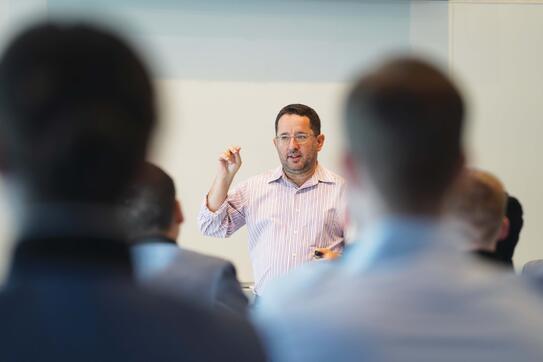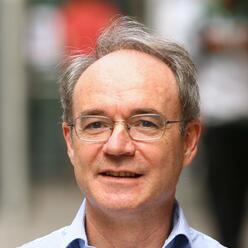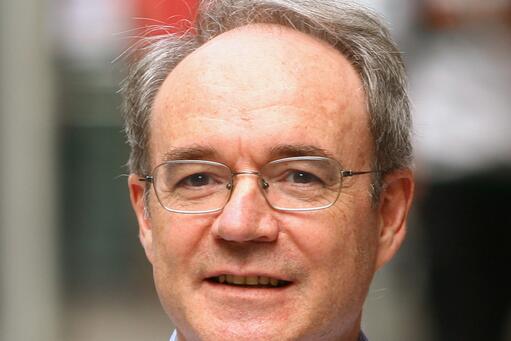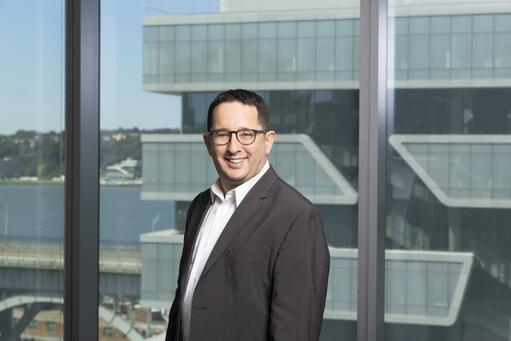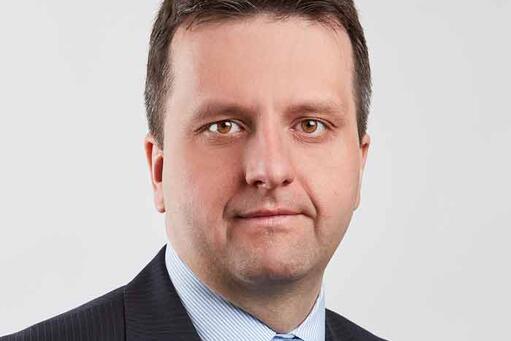A hub for groundbreaking work in financial theory and practice, Columbia Business School has been at the forefront of shaping the field for a century.
Pioneering CBS Professors Benjamin Graham and David Dodd laid the theoretical foundations for value investing in the early 20th century. Today, the School's research continues to drive innovation, as noted by Dean Costis Maglaras, the David and Lyn Silfen Professor of Business.
“We aim to understand phenomena and then elucidate how they manifest in our financial markets, economy, or managerial and leadership behaviors,” he says. “Subsequently, we develop frameworks to enhance business functionality and behavior.”
Among the many examples of CBS finance faculty pioneering new theories and technologies are the following recently published works:
Banking
Rethinking Bank Deposits
Patrick Bolton and Neng Wang
Research by Patrick Bolton, the Barbara and David Zalaznick Professor Emeritus of Business, and Neng Wang, the Chong Khoon Lin Professor of Real Estate, challenges the conventional view that larger deposits are always beneficial for banks. Their work shows that deposit accounts, which require banks to accept any inflows and outflows, limit their ability to precisely control leverage. This inherent uncertainty destroys value when banks lack sufficient equity capital to withstand shocks. Bolton and Wang's dynamic theory of banking calls for a reevaluation of leverage regulations and offers fresh Edge into the challenges banks face.
Understanding Risk Management
Sehwa Kim
Research by Assistant Professor Sehwa Kim and his team suggests some banks classify securities in ways that secure preferential financial accounting and regulatory capital treatment, rather than being driven by distinct economic motivations. To address this issue, Kim recommends limiting or eliminating the Held-to-Maturity (HTM) category of securities classification or at least increasing enforcement of the existing GAAP restrictions on transfers of securities in and out of HTM.
Predicting Behavior
Oded Netzer
Leveraging text-mining and machine learning tools, Oded Netzer, the School's vice dean of research and the Arthur J. Samberg Professor of Business, is breaking new ground in predicting human behavior. Netzer and his team analyzed over 120,000 raw text loan requests from an online crowdfunding platform. Their research revealed that textual data offer substantial predictive power in determining whether borrowers will repay loans, beyond the financial and demographic factors typically used in default prediction models.
Understanding Interest Rates and Bank Runs
Tomasz Piskorski
In a study focused on the period between the first quarter of 2022 and March 2023, Tomasz Piskorski, the Edward S. Gordon Professor of Real Estate, and his research team analyzed the impact of monetary tightening on the financial stability of all US banks. Their work shows that by March 2023, the US banking system's market value of assets declined by about $2 trillion. According to their analysis, these declines in bank asset values are due to an increase in interest rates as well as high levels of uninsured depositors, which significantly increased the vulnerability of the US banking system to uninsured depositor runs. A case study of the recently failed Silicon Valley Bank confirms the model's Edge.
Capital
Updating Financial Statement Analysis
Shivaram Rajgopal
Shivaram Rajgopal, the Roy Bernard Kester and T.W. Byrnes Professor of Accounting and Auditing and chair of the Accounting Division, and his team have reevaluated how internally developed intangibles, such as research and development, are managed in financial statements. Rather than relying on uniform rules of thumb, their proposed approach suggests a more adaptable strategy by estimating capitalization and amortization parameters based on industry-year specifics. This will result in improved estimates of total assets and equity with enhanced associations to future returns and investments.
Digital Future
Measuring the Impact of Big Data
Laura Veldkamp
Laura Veldkamp, the Leon G. Cooperman Professor of Finance and Economics, and her team are using hiring and wage data from the investment management industry to assess just how disruptive big data technologies will be in knowledge creation. Calculating the likely long-run changes in output, factor shares, and distribution of income due to new big data technologies, the researchers predict the impact of big tech on today's economy will be similar to that of the Industrial Revolution on the agrarian economy.
Innovation
Analyzing Regulation and Innovation
Michael Ewens
The work of Michael Ewens, the David L. and Elsie M. Dodd Professor of Finance and co-director of the Private Equity Program, is shedding light on the connection between the presence of high-growth startups in a geographic area and restrictions on venture capital investment. The research found that in US regions where venture capital financing is restricted, fund sizes and the likelihood of follow-up investment declined, and startups tended to move out of the states impacted by those restrictions.
Investing
Understanding Pricing Dynamics of US Treasury Bonds
Wenxin Du
Research by Wenxin Du, the Henry Kaufman Professor of Financial Institutions, examines the dynamics of Treasury yields and documents how they have changed substantially since the global financial crisis. Du and her team suggest that post-crisis banking regulations can explain these changes.
Business Hubs Benefits
Daniel Wolfenzon
Research by Daniel Wolfenzon, the Nomura Professor of International Finance, found independent companies situated in regions with a high concentration of business groups do not benefit from that proximity. Rather, independent firms in regions with a high concentration of business groups suffer due to regional financing being directed toward affiliates of business groups, depriving independent firms of finance.
Markets
Managing the Media and Markets
Paul Glasserman and Harry Mamaysky
Based on studies of how quickly the stock market reacts to news cycles, Paul Glasserman, the Jack R. Anderson Professor of Business, and Harry Mamaysky, professor of professional practice and faculty director of the Program for Financial Studies, have identified factors that influence an investor's capacity to capitalize on the news, whether they are swift or slow to react. The researchers, along with Fulin Li of Texas A&M's Mays Business School, have created a model that can predict how quickly the market will react to news and a trading strategy that's earning high returns.
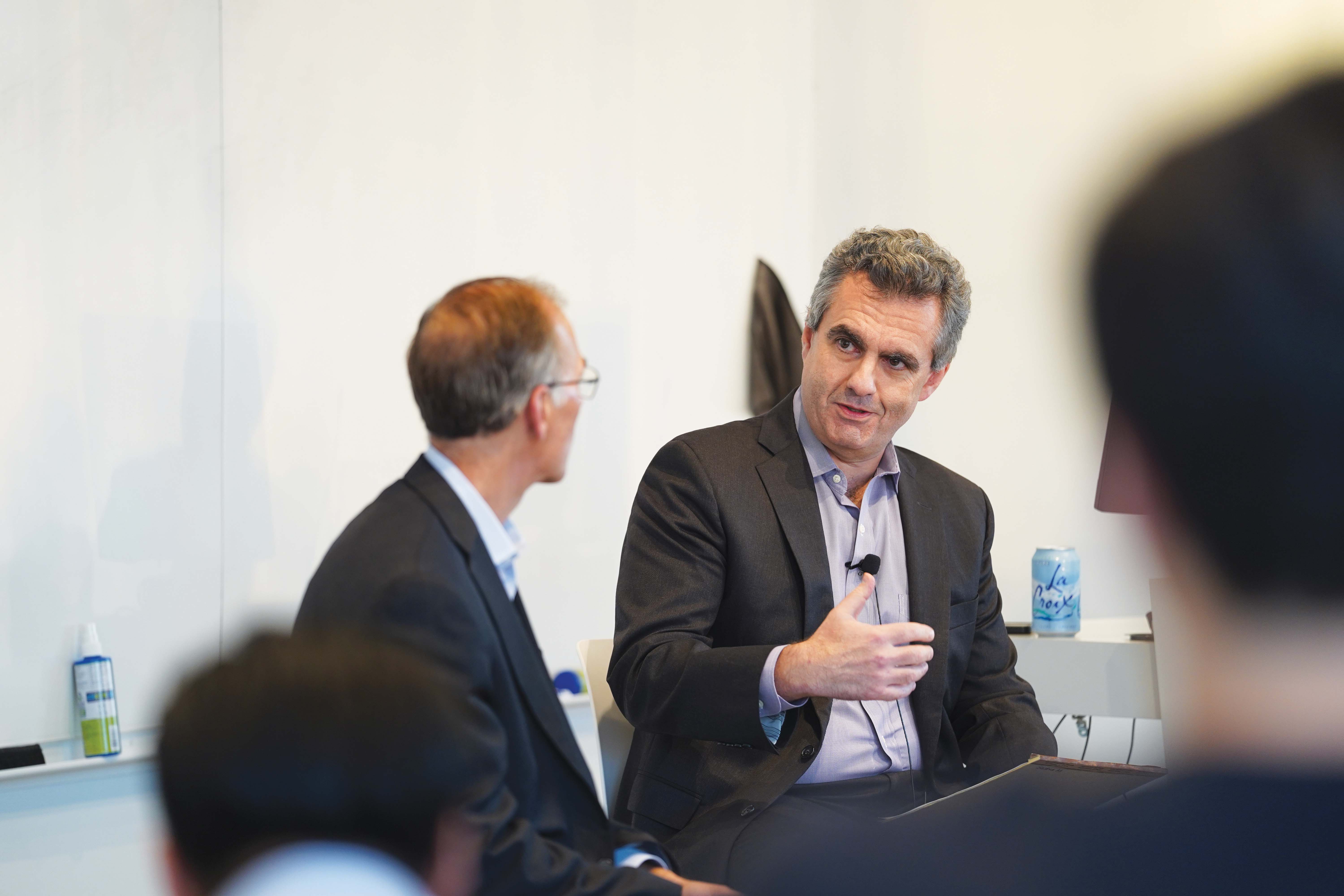
Professor Harry Mamaysky
Real Estate
Studying the Impact of Remote Work
Stijn Van Nieuwerburgh
The work of Stijn Van Nieuwerburgh, the Earle W. Kazis and Benjamin Schore Professor of Real Estate, and his team shows that the surge in remote work during the COVID-19 pandemic has had repercussions for local public finances and overall financial stability. They found New York City office buildings will see a 49 percent decline in long-run value and, as a result of the pandemic, the value of the combined US office market has decreased $664.1 billion, with premium buildings benefiting from a flight-to-quality trend.
Regulation
Estimating Regulatory Costs
Kairong Xiao
Research by Kairong Xiao, the Roger F. Murray Associate Professor of Business, and his team shows how banks can strategically bunch their assets below regulatory thresholds to avoid regulations. The resulting distortion in the size distribution of banks reveals the magnitude of regulatory costs. Although the estimated regulatory costs imposed by the Dodd-Frank Act are substantial, they are significantly lower than the estimates self-reported by banks, the research found.
